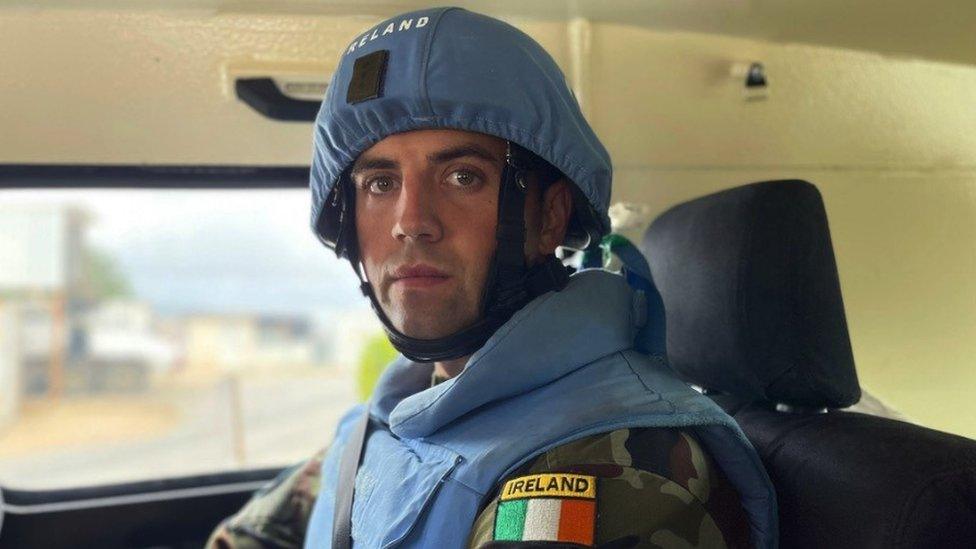Suspected Israeli strike in Lebanon kills senior Hezbollah commander
- Published
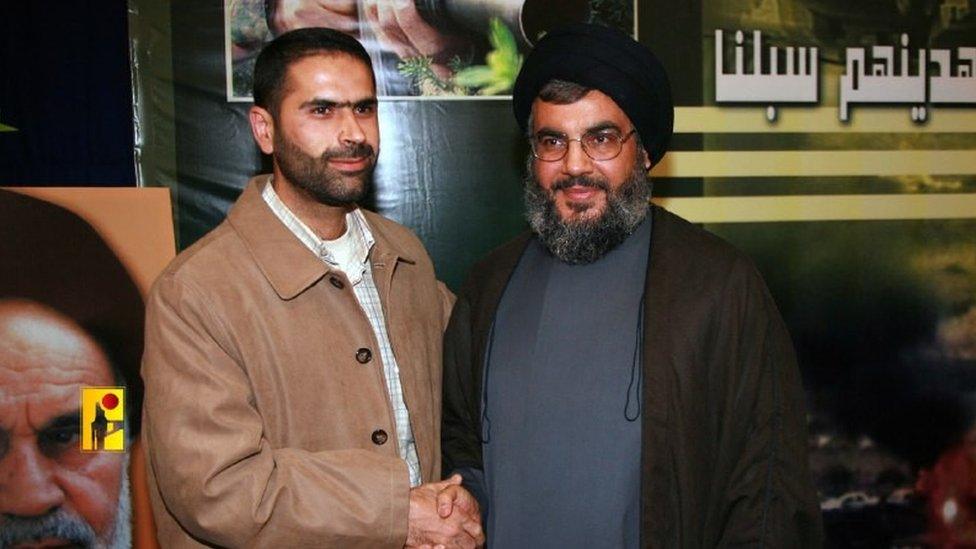
Hezbollah released an undated photo showing Wissam Tawil (L) shaking hands with its leader Hassan Nasrallah (R)
The Lebanese group Hezbollah says one of its commanders has been killed in a strike in southern Lebanon believed to have been carried out by Israel.
Wissam Tawil was reportedly a member of the group's elite Radwan Force, and one of the most prominent Hezbollah figures to be killed in the current violence.
Israel's military did not comment, but it did say it had hit Hezbollah targets in response to cross-border attacks.
The clashes have raised fears of a wider regional conflict.
Hezbollah is an Iran-backed group that wields considerable military and political power in Lebanon. It is designated as a terrorist organisation by Israel, the UK and other Western powers.
Its fighters have exchanged fire with Israeli forces almost every day along the border since the start of the war between Israel and the Palestinian group Hamas in the Gaza Strip on 7 October.
Israel's prime minister told soldiers stationed on the border with Lebanon on Monday that he was determined to "do everything necessary to restore security to the north".
Lebanon's state-run National News Agency reported that two people - whom it did not name - were killed in an Israeli air strike that targeted a car in the al-Dabsha area of Khirbet Selim at around 10:15 (08:15 GMT) on Monday.
The strike caused the vehicle to veer off the road and catch fire, it added.
Pictures from the scene showed the burned-out wreck of a car on a roadside.
Lebanese security sources said one of those killed in the strike was Wissam Tawil and that the other was also a Hezbollah fighter.
Three sources told Reuters news agency that Tawil was the deputy head of a unit within Hezbollah's Radwan Force, whose well-trained members are considered the group's special forces.
AFP news agency meanwhile cited another source as saying that Tawil "had a leading role in managing Hezbollah's operations in the south" of Lebanon.
Later, Hezbollah issued a statement announcing Tawil's death and describing him as a "commander". It did not confirm that he was killed in a strike, saying only that he "rose as a martyr on the road to Jerusalem".
The statement provided no details about Tawil's role in Hezbollah, but the group published photos showing him shaking hands with its leader, Hassan Nasrallah, and sitting next the late Iranian general Qasem Soleimani, who was assassinated in a US strike in Iraq in 2020.
The group also announced that its fighters had fired at Israeli forces in the Shtoula area of northern Israel and in the disputed Shebaa Farms/Mount Dov area in the occupied Golan Heights.
The Israel Defense Forces (IDF) said it would not comment on foreign media reports about Tawil's death.
However, not long after the incident in Khirbet Selim it put out a statement saying that it "struck a number of areas in Lebanese territory" after an anti-tank missile was launched towards the northern Israeli town of Kiryat Shmona.
"Additionally, [Israeli Air Force] fighter jets struck a series of Hezbollah terror targets in Lebanon, including military sites in which Hezbollah terrorists operated," it added.
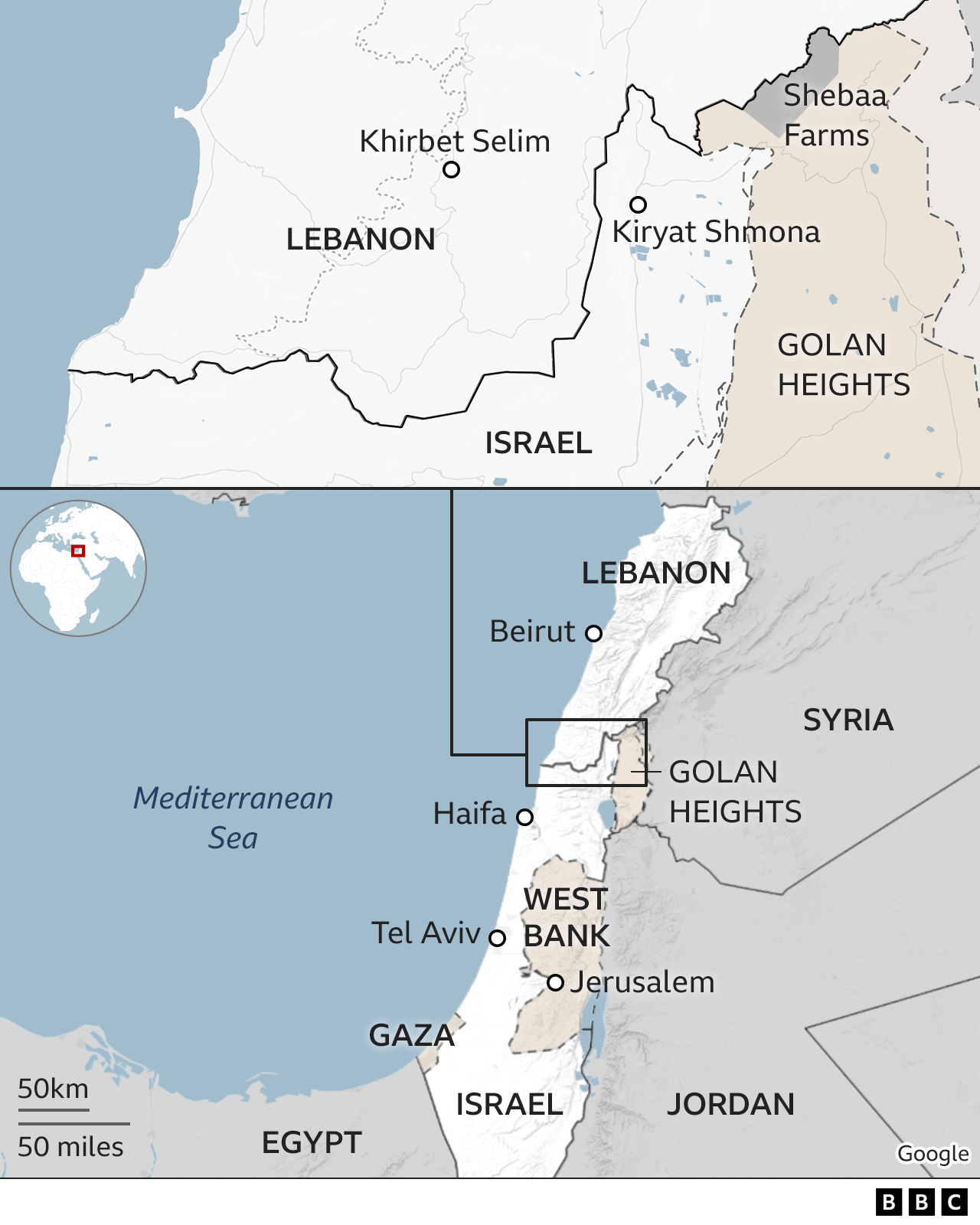
On Monday afternoon, the IDF said a jet carried out another series of strikes after an aerial defence array intercepted a "suspicious aerial target" that crossed from Lebanon, triggering sirens in the Kfar Blum area.
An Israeli soldier was also lightly injured by an anti-tank missile that was fired towards Mount Dov, it added.
Over the weekend, the IDF's chief spokesman said it had targeted significant military assets of Hezbollah and carried out "damaging" strikes on the Radwan Force in an effort to drive them away from the border. It came after a rocket and missile barrage launched from Lebanon damaged an air traffic control base on Mount Meron.
The cross-border violence over the past three months has already killed dozens of Hezbollah fighters, as well as several Israeli soldiers and Israeli and Lebanese civilians. But so far, Hezbollah has calibrated its actions to prevent a full-scale war with Israel.
Last week, reacting to a suspected Israeli strike that killed Hamas deputy leader Saleh al-Arouri and six other people in Hezbollah's stronghold in Beirut, Hassan Nasrallah warned Israeli authorities against starting a conflict. "Whoever thinks of war with us... he will regret it," he said.
However, crucially, there was no threat from Hezbollah's leader to escalate its actions.
Many in Lebanon still remember the destruction caused by the month-long conflict between Israel and Hezbollah in 2006 and, with Lebanon suffering a massive economic crisis, there is no public support for any military confrontation. Miscalculation, however, is always a risk.
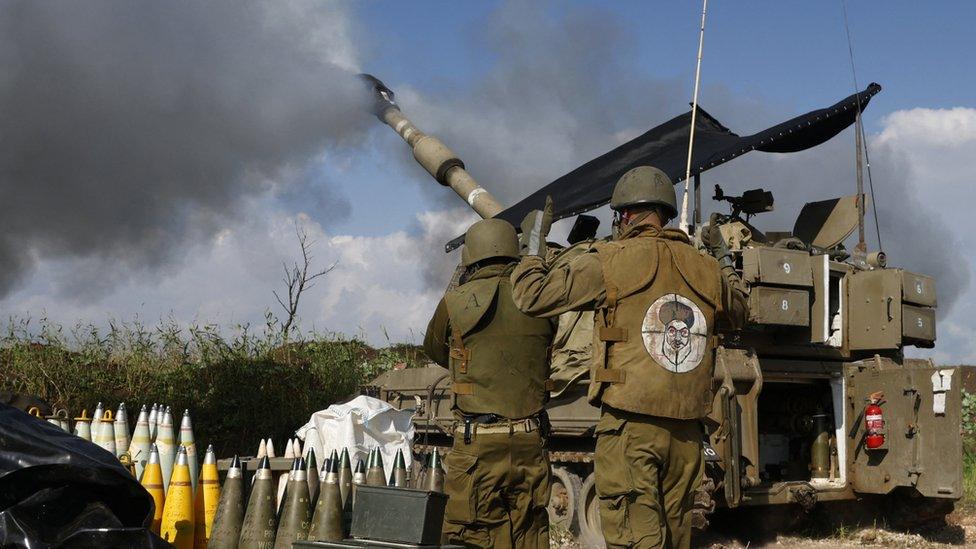
The Israeli military’s chief of staff has warned Hezbollah that it is ready for another war
And, in Israel, some senior figures have touted a potential larger offensive against Hezbollah to reduce the threat posed by the group and allow the return of thousands of residents who have been evacuated because of constant attacks.
"We'll create a completely different reality [in the north], or we'll get to another war," IDF chief of staff Lt Gen Herzl Halevi said on Sunday.
On Monday, Prime Minister Benjamin Netanyahu told soldiers at a base in Kiryat Shmona that he wanted to "send a message to Hezbollah".
"Hezbollah made a big mistake with us in 2006 and it is also doing so now. It thought that we were like 'spider's cobwebs'. Suddenly, it sees what kind of 'spider'. It sees great force here, the unity of the people, the determination to do everything necessary to restore security to the north," he said.
"Of course, we prefer that this be done without a wide-ranging campaign, but that will not stop us," he added.
The US Secretary of State, Antony Blinken, who has been meeting Arab leaders on his latest regional tour, has been trying to de-escalate tensions.
He is also expected to call for Israel to reduce the intensity of its fighting in Gaza amid reports of dozens of Palestinians killed in the latest air strikes.
Related topics
- Published4 January 2024
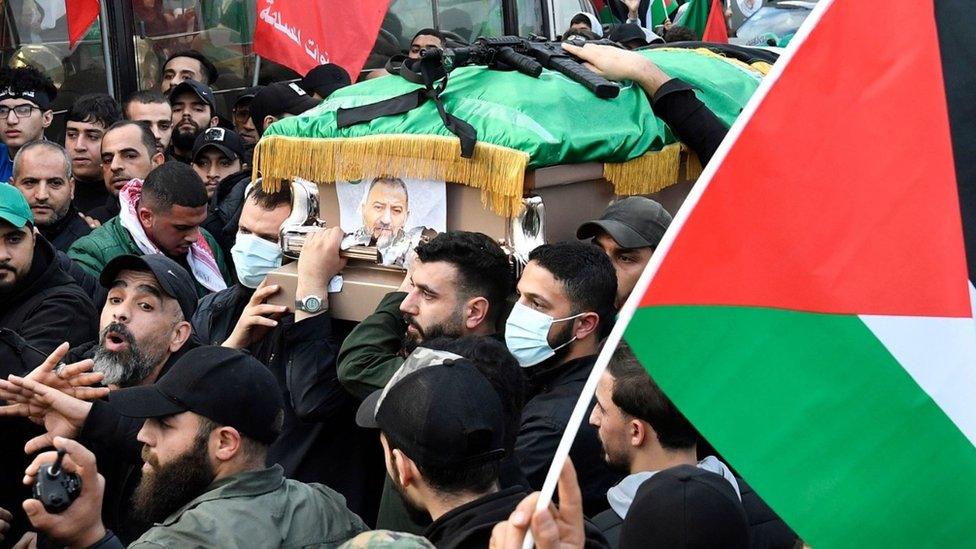
- Published3 January 2024
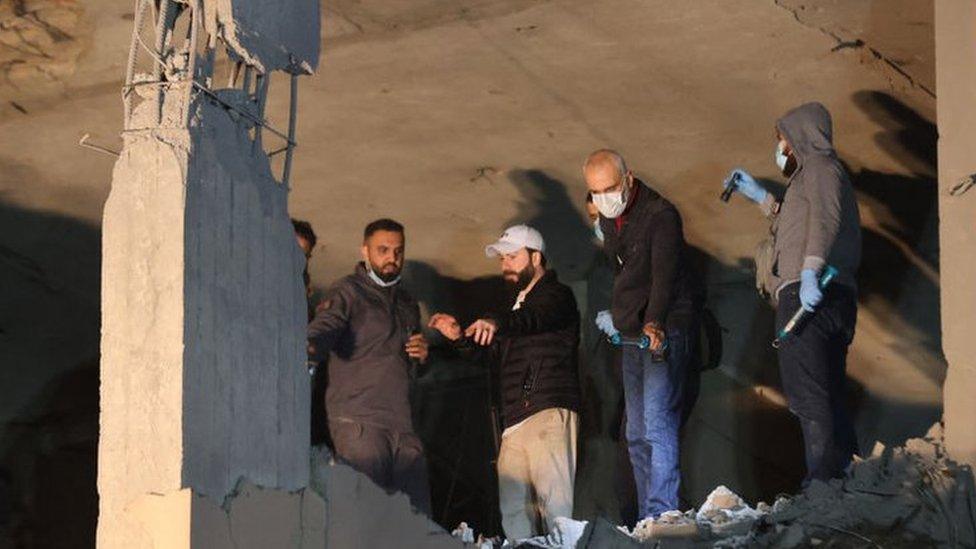
- Published28 December 2023
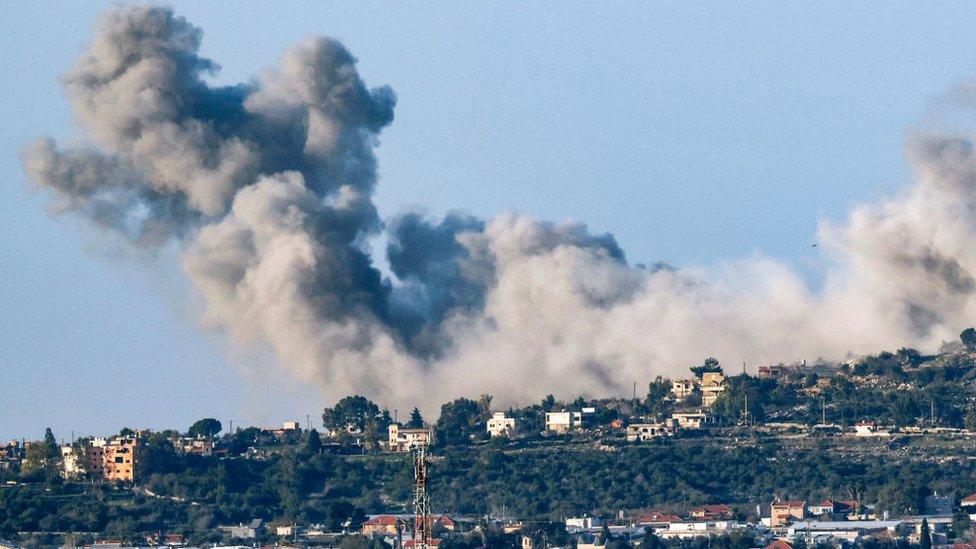
- Published27 November 2023
